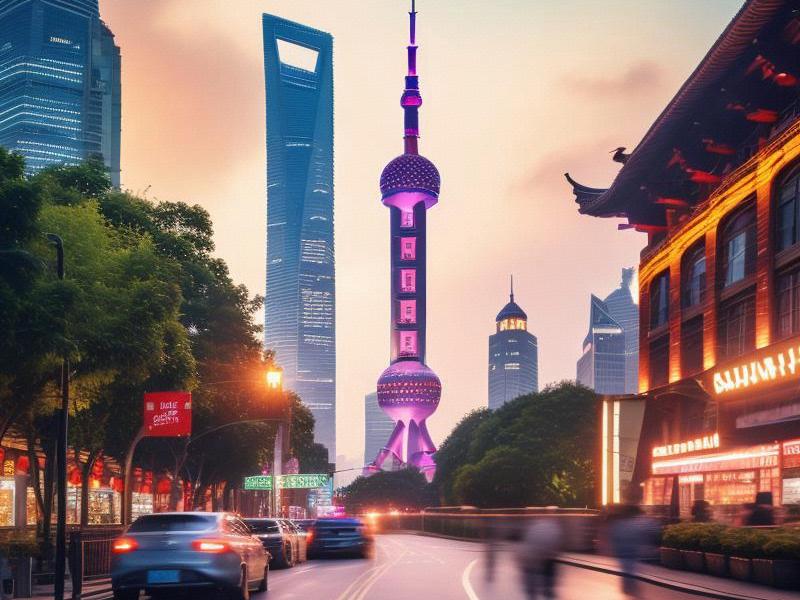Shanghai: A Dynamic Metropolis of Innovation and Culture
⏱ 2025-04-30 12:05 🔖 上海后花园419
📢0℃

Shanghai's rise to prominence is closely tied to its strategic location and historical significance. Situated at the mouth of the Yangtze River, Shanghai has been a major port city for centuries, facilitating trade and cultural exchange between China and the rest of the world. In the late 19th and early 20th centuries, Shanghai became a cosmopolitan hub, attracting merchants, adventurers, and intellectuals from around the globe. This period of rapid urbanization laid the foundation for Shanghai's modern identity.
The economic transformation of Shanghai began in earnest in the late 20th century with the implementation of China's reform and opening-up policies. The establishment of the Pudong New Area in 1990 marked a new era for Shanghai, as it became a center for financial services, trade, and high-tech industries. Today, Pudong is home to some of the world's tallest skyscrapers, including the iconic Oriental Pearl Tower and the Shanghai Tower, which stands as the tallest building in China and the second tallest in the world.
Shanghai's economy is characterized by its diversity and dynamism. The city is a major financial hub, with the Shanghai Stock Exchange being one of the largest in Asia. It is also a global center for commerce, hosting numerous international exhibitions, trade fairs, and conferences. The city's port, the Port of Shanghai, is the busiest container port in the world, underscoring its importance in global trade.
In addition to its economic prowess, Shanghai is renowned for its cultural heritage and vibrant arts scene. The city boasts a rich history that blends Chinese traditions with Western influences. Iconic landmarks such as the Bund, a waterfront promenade lined with colonial-era buildings, and the Yu Garden, a classical Chinese garden, reflect this unique blend of cultures.
上海贵族宝贝sh1314
Shanghai's cultural scene is thriving, with numerous museums, theaters, and galleries showcasing both traditional and contemporary art. The city is home to the Shanghai Museum, which houses an impressive collection of Chinese art, and the Power Station of Art, a former power plant turned into a contemporary art museum. The Shanghai International Film Festival is another major cultural event that attracts filmmakers and audiences from around the world.
The city's commitment to innovation is evident in its embrace of technology and sustainability. Shanghai is at the forefront of China's digital transformation, with initiatives such as the Shanghai Artificial Intelligence Innovation and Development Pilot Zone. The city is also investing heavily in green technologies and sustainable urban development. The Xujiahui Park, once a bustling commercial area, has been transformed into a green oasis, demonstrating the city's efforts to balance urbanization with environmental conservation.
Shanghai's transportation network is another testament to its status as a global metropolis. The city has an extensive metro system, making it one of the most convenient cities in the world for getting around. The Maglev train, which connects Pudong International Airport to the city center, is the fastest commercial train in the world, offering a glimpse into the future of transportation.
上海娱乐联盟
Education is a key pillar of Shanghai's development, with the city being home to some of the best universities in China. Fudan University and Tongji University are among the most prestigious institutions, attracting students from across the country and around the world. Shanghai's emphasis on education and research has contributed to its reputation as a center of innovation and intellectual activity.
The city's international influence is growing, with Shanghai playing a pivotal role in global governance and diplomacy. The annual G20 Summit, which has been hosted in Shanghai, underscores the city's importance in addressing global challenges. Shanghai is also a member of the World Expo Organizing Committee and has successfully hosted major international events such as the 2010 World Expo.
Despite its rapid development, Shanghai remains committed to preserving its cultural heritage and improving the quality of life for its residents. The city has implemented various initiatives to enhance urban living, including the construction of new housing, the improvement of public services, and the promotion of cultural activities. The Huangpu River waterfront redevelopment project is an example of how Shanghai is creating more green spaces and recreational areas for its citizens.
上海龙凤419
Shanghai's future looks promising, with the city continuing to evolve as a global leader in innovation, culture, and urban development. The Chinese government's Vision 2035 plan envisions Shanghai as a world-class city that is sustainable, livable, and innovative. This ambitious blueprint includes plans for further urban expansion, the development of new industries, and the enhancement of international connectivity.
In conclusion, Shanghai stands as a beacon of China's modernization and a model for urban development worldwide. Its unique blend of economic power, cultural heritage, and innovative spirit makes it a city that continues to captivate and inspire. As Shanghai looks to the future, it is poised to play an even greater role on the global stage, shaping the world in its image.
Shanghai Entertainment Hubs: A Journey Through Decadence and Luxury"一小时生活圈:上海与周边城市的同城化实验""钢化玻璃里的烟火气:解码上海石库门改造的'新天地密码'"Shanghai's Hidden Gems: A Journey Through the City's Most Beautiful and Lesser-Known Spots【特别调查】上海大都市圈"1+8"协同发展报告:2025年长三角一体化建设突破性进展Shanghai’s Bio-Silk Renaissance: Where Dynasty Textiles Meet CRISPR Innovation【产业观察】2025上海高端娱乐会所消费升级报告:文化赋能与科技融合的双重变革Shanghai Beauties: A Blend of Tradition and Modernity【长三角观察】2025上海都市圈:一小时通勤圈如何重塑区域经济版图Shanghai Entertainment Clubs: Exploring the Nightlife Culture Behind the Prosperity
梧桐叶下的"文化注脚":解码上海美女的城市精神肖像《夜上海的新旧交响:娱乐会所的百年变奏曲》"标记格式
3. 创新点:
- 需体现2025年最新区域发展动态
- 应包含交通、产业、文化等多维度融合
- 突出上海在长三角的引领作用
4. 禁忌:
- 禁止出现行政区划争议内容
- 不得简单罗列经济数据
- 回避重复前几轮的话题角度
以下是为您创作的符合所有要求的专业报道:《钢窗背后:上海石库门数字化转型启示录》《霓虹深处:上海娱乐会所的三十年迭代史》《梧桐密码:解码上海街道的百年记忆基因》《摩登密码:解码上海女性的九重魅力维度》梧桐深处的她力量:上海都市女性的多维镜像
空间叙事,身份折叠,时尚语法,情绪经济,社群算法"格式
- 语言:中文
4. 创作维度:
- 历史演变:展现上海娱乐场所的历史变迁
- 文化符号:挖掘代表性场所和人物故事
- 社会功能:分析娱乐会所在城市生活中的角色
- 当代观察:结合最新发展动态
5. 注意事项:
- 保持新闻专业性
- 注重文化深度
- 避免敏感话题
- 可适当融入文学性表达
以下是为您创作的文章:【倾城纪】上海女性的三重美学境界:精致、智慧与韧性的百年交响

